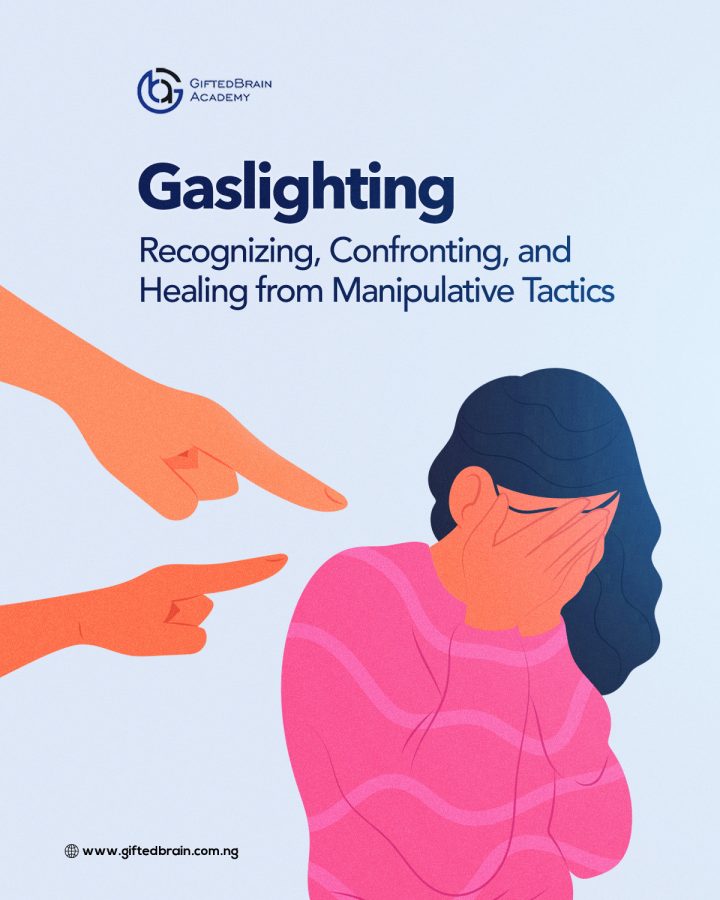That night, Lisa received a heart-wrenching breakup note from her fiance.
Wrapped in shock and a bid to stop herself from doing anything crazy, she quickly called her friend, Jenny, and burst out crying.
Jenny listened as she narrated the details. Her fiance had left her because he was embarrassed about her body. According to him, she was too fat and was no longer his ‘spec’. He didn’t want her anymore because of this.
It took over an hour of encouraging words before Lisa could calm down. She admitted to feeling insecure whenever she heard the remarks about her body and resolved to work on her weight.
A few days later, Lisa invited Jenny and the other ladies for a house party so she could let off steam and forget what happened.
But her escaping reality was short-lived, as two ladies walked up to her and inquired if it was true that her ex-fiance left her because she was fat.
Surprised at how they knew that, she slowly nodded and they burst out laughing.
Lisa felt rage rising in her throat. Only Jenny knew. Why would she tell others? The ladies said they heard Jenny making a joke about it to the group.
That was when Lisa noticed the eyes on her…The mutters directed at her. And she felt like running away.
Once the hangout was over, she called Jenny aside and confronted her about what had transpired. But her friend’s response threw her off balance.
“Wait… What if I made a joke about it to the girls? You’re not offended about that now, are you?”
“But I let you know I was feeling insecure and…”
“Come on, babe. You’re being too sensitive about this. Why can’t you loosen up for once?”
“But Jenny…”
“See what I’m talking about? Maybe this is the real reason why he left you. You’re taking things too seriously.”
Then she walked away, leaving Lisa more confused than ever.
Was she wrong to have confronted her friend about such a ‘small’ joke?
Was she overreacting about what had happened?
Should she apologize to Jenny and preserve the friendship?
…
Dear reader, can you guess what happened to Lisa during the argument? She had been gaslighted!
This post aims to teach you what Gaslighting is, common examples that happen in our daily lives, how to spot when you’re being gaslighted, and how to deal with it.
What is Gaslighting?
According to Healthline,
“Gaslighting can be defined as a form of emotional abuse that makes you question your beliefs and perception of reality.”
From the case scenario above, it’s quite obvious that Lisa was wronged, but Jenny made it seem like she was the offended one.
Gaslighting is simply a form of emotional manipulation where the gaslighter gets you to question your stance on a matter and shifts the blame to you when it is not rightly so.
How Do You Know You Are Being Gaslighted?

What are the signs you could observe and know that a gaslighter is playing tricks with your mind?
The gaslighter:
• Calls you ‘crazy’ or says you’re overreacting when you express your displeasure over their offensive behaviour.
• Keeps saying you did/ said things that you don’t remember saying/doing. They go as far as telling others.
• Twists and paraphrases events to portray you as the bad guy whereas they are in the wrong.
• Always opposes your recollection of events. Denies them and calls it untrue.
• Insists that they are right even in the presence of facts that say otherwise.
Seeing the signs above, does it ring a bell? Have you ever been gaslighted?
In case you’re still confused about how it happens, here are some
Common Examples of Gaslighting Behaviour:
The Controlling Partner:
Sarah had always been confident until she met Mark. Over time, he convinced her that her friends were using her and that her family didn’t care. He regularly told her she was too sensitive or imagining things when she questioned his behaviour. Gradually, Sarah withdrew from her loved ones, isolated and gaslit into believing she had no one but Mark.
The Manipulative Boss:
John worked tirelessly for his boss, Mr. Smith, who constantly took credit for John’s ideas and hard work. When John confronted Mr. Smith, he was met with denials and accusations of incompetence. Slowly, John began doubting his abilities, convinced he was the problem.
The Abusive Parent:
Sarah grew up with a parent who frequently told her that her emotions were exaggerated, that she was making things up, or that she was a difficult child. This gaslighting left Sarah emotionally scarred, struggling with self-doubt, and unable to trust her own feelings.

It is important to note that Gaslighting could happen as a one-off incident like in our story at the beginning of this post, or as repeated occurrences like in the case of the ‘Abusive parent’ example above.
However it happens, Gaslighting leaves serious mental and emotional effects on the brain of its victims. These effects are shown in their response to similar situations in the future.
Effects of Gaslighting
(Signs That Show You’ve Experienced Gaslighting)
You might find yourself:
• Always in doubt of your feelings and concerns. Instead of speaking up, you shy away for fear of being seen as too sensitive.
• Being extremely anxious about negative events.
• Being depressed for expressing how you feel about something.
• Socially isolated and withdrawn to avoid any interaction that leaves you questioning your sanity.
• Having a decreased decision-making stance. You’re always in need of validation to be sure you’re right.
• Having little to no trust in your judgment/recollection of previous events
• Walking around with low self-esteem, feeling constantly stressed out, and an altered perception of reality.
Gaslighting leaves your mind entrapped in a web of doubt, distrust, and confusion.

How Do You Deal With Gaslighting?
If you suspect that you’re facing a gaslighting situation, the following steps gathered from trustworthy research should help:
1: Be sure that you’re being Gaslighted
Gaslighting is different from telling a lie. Gaslighting is a form of manipulation that gets you to doubt your perception of reality on a particular matter.
Using the signs above as a guide, you must be sure it is Gaslighting to avoid being a gaslighter yourself. Get it?
2: Gather Evidence
The reason why most gaslighters walk away free is because their victims have no proof of being gaslighted. Record your conversations. Take notes immediately after if you can’t record. Do not delete your chats. They’ll come in handy as proof when it comes to this next step…
3. Talk to Someone
Do you remember that social withdrawal is an effect of Gaslighting? A victim of this emotional manipulation sinks deeper when they are by themselves.
If you’re experiencing gaslighting, reach out to someone. This could be a loved one, a friend, or a therapist(highly recommended). The criteria should be someone who can be objective about the situation. Tell them what you’re experiencing and show them the proof to get a third-person perspective.
This would help to clear the doubts building in your head that are making you question your sanity and judgment.
4: Stay Confident
After getting a third, fourth, and fifth view on the gaslighting experience, leverage their responses to build your confidence. This way, when the gaslighter comes knocking again, you’re so confident about your perspective that they can’t penetrate.
5: Confront The Gaslighter
Since you now know what you’re experiencing, it’s time to call them out on that behaviour.
Some studies show that most gaslighters do not carry out the act deliberately. Some do so in defence. Talk to them about it and if they try to gaslight you further, that might just be your cue to walk away from that relationship, or limit communication.
6: Immerse Yourself In You
This simply means channelling your energy into doing the things you love. This will help in bringing back the sense of identity that the gaslighting experience robbed you of.
7: Seek Professional Support
In the case that this gaslighting experience gets severe and leads to strong mental damage, seek professional support from a mental health therapist. They are equipped with the best ways to get you back on your feet in no time.
Might be hard to admit after facing Gaslighting, but there is nothing wrong with your sanity or perception of events. You are just facing this deadly emotional manipulation tactic.
We hope that the steps highlighted in this post help you(or anyone you know) recognize the signs and deal with the trauma as quickly as possible.
This post is written by Oge Obodo.
Oge Obodo is a creative writer who enjoys using stories to educate, inspire, and inform readers. She is also a Nurse with a passion for mental health.



Beautiful write up, made me realize in subtle ways I had been gaslighted and it dropped my opinion of myself for a while until I decided to cut communication with said person
This touches me so much. As introverts, we are more prone to gaslighting. Thank you so much for sharing this deep thoughts.